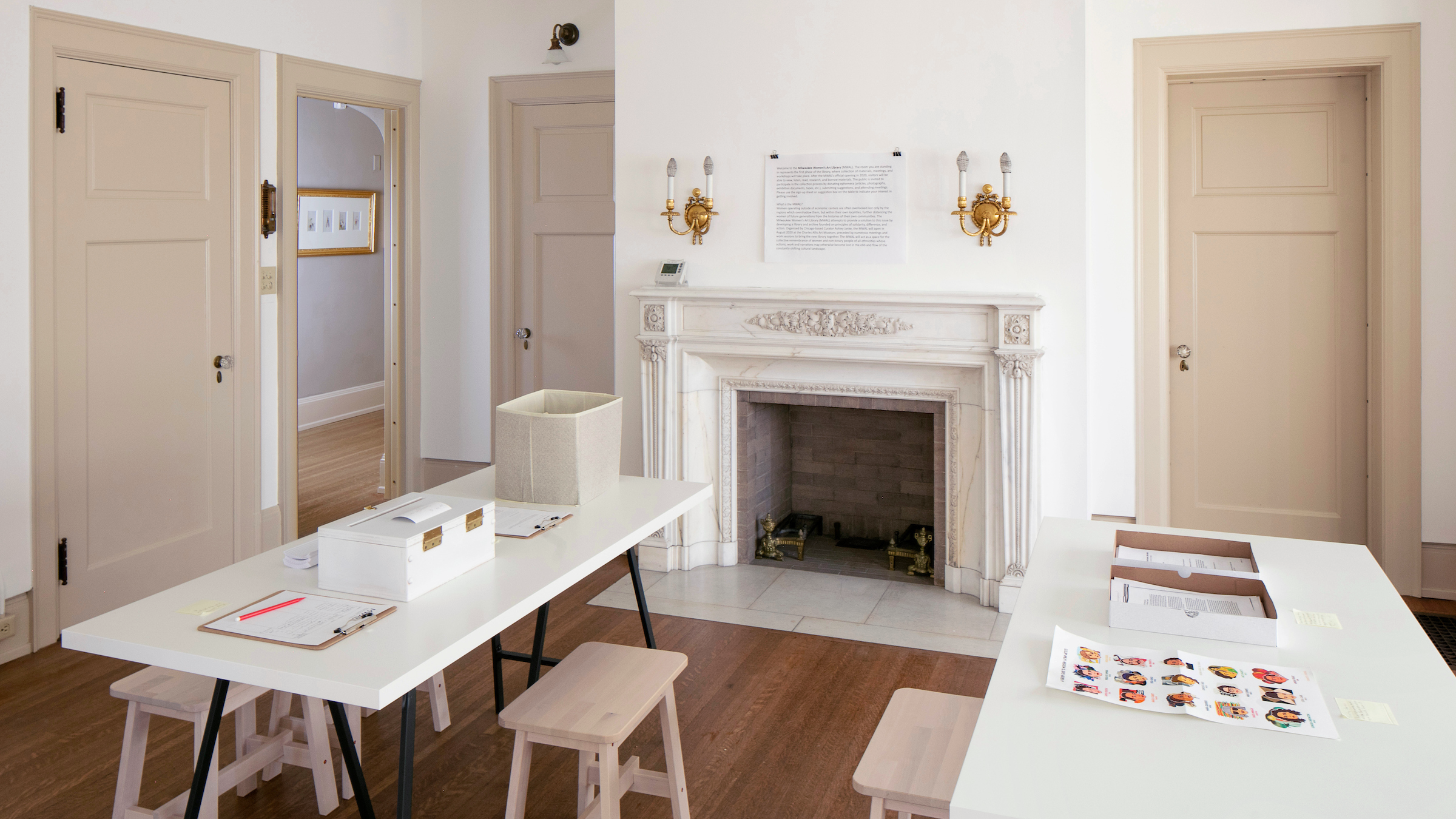About
The Collection
Women and non-binary artists operating outside of global economic centers are often overlooked not only by the regions which overshadow them but within their own localities, further distancing the women of future generations from the histories of their own communities. The Milwaukee Women's Art Library (MWAL) attempts to provide a solution to this issue by developing a library and archive founded on principles of solidarity, difference,
and action.
Organized by Chicago-based curator Ashley Janke, the MWAL continues to build out its collection at the Charles Allis Art Museum, preceded by numerous meetings and work sessions to bring the new library together. The MWAL is a space for the collective remembrance of women and non-binary people of all ethnicities whose actions, work, and narratives may otherwise become lost in the ebb and flow of the constantly shifting cultural landscape.
The Venue
As a former branch of the Milwaukee Public Library system, the Charles Allis has a history of preserving and sharing collections for the public to learn from, research, and enjoy.
*The site of the MWAL is closed until further notice due to COVID-19. However, online submissions are still accepted. Learn more.
Women living in peripheral cities deserve access to their own art histories.
Why?
Because archives are a form of power and communication…
...And future people in similar circumstances deserve a launch pad rather than a sinkhole.
...which should foster feelings of intergenerational unity rather than isolation and unbelonging.
Sodon by centuries of dominate patriarchal and colonial forces, the historical cannon still reeks, and there is a lot more work to be done in the slow redistribution of its jurisdiction.
Because women artists and activists from the first and second waves made the effort to record their own histories yet their names are still missing and their stories are still trapped in unsorted manila folders.
… and we still share the struggles of those women
… because women’s rage is simplified into cute fads.
Because women's archives should not be treated as a novelty but rather a valid resource which is made accessible to women in their own regions rather than isolated in national capitals and global centers.
Because a handful of women are made to represent half of the global population.
Because the current hegemonic systems celebrate women for their sameness rather than acknowledge their difference.

